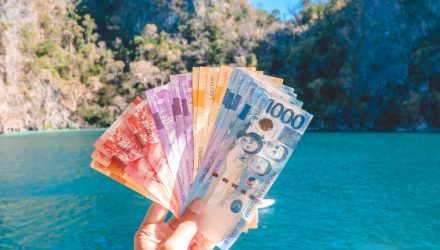There are opportunities in emerging markets (EM) even amid the uncertainty of the coronavirus pandemic if investors are willing to look. One currency in this EM country has been an unlikely outperformer in the space—the Philippine peso.
“In March, prospects for the Philippine economy were darkening,” an article in The Economist noted. “The country’s combustible president, Rodrigo Duterte, had announced an immediate quarantine for the main island of Luzon and its 55m people. Bangko Sentral ng Pilipinas (BSP), the central bank, warned that the outlook was the worst since the Asian financial crisis of 1997-98. The currencies of other countries in the region were sinking as the world economy listed. But the peso barely budged. It is one of a handful of emerging-market currencies to have strengthened against the dollar this year. Its steadfastness says a lot about the resilience of the Philippine economy.”
One of the reasons for strength in the country’s economy is the fall of oil prices, which cut its import bill. Additionally, per the Economist article, one analyst “thinks foreign investors held on to Philippine assets because interest rates remain higher than in rich countries, yet the Philippines is seen as a safer bet than most other emerging markets.”
Strength in an EM currency will typically translate to strength in its equities and exchange-traded fund (ETF) investors sensing an opportunity can look to funds like the iShares MSCI Philippines ETF (NYSEArca: EPHE). EPHE seeks to track the investment results of the MSCI Philippines Investable Market Index (IMI), which is a free float-adjusted market capitalization-weighted index designed to measure the performance of the Philippine equity markets.
EPHE gives investors:
- Exposure to a broad range of companies in the Philippines
- Targeted access to Philippine stocks
- Use to express a single country view
US Dollar to Philippine Peso Exchange Rate data by YCharts
Broad Exposure to EM
When looking for more broad exposure to emerging markets versus single country exposure, one fund to consider for broad-based emerging markets exposure, but with less volatility risk is the FlexShares Emerging Markets Quality Low Volatility Index Fund (QLVE). QLVE seeks investment results that correspond generally to the price and yield performance, before fees and expenses, of the Northern Trust Emerging Markets Quality Low Volatility IndexSM.
The underlying index is designed to reflect the performance of a selection of companies that, in aggregate, possess lower overall absolute volatility characteristics relative to a broad universe of securities domiciled in emerging market countries. Under normal circumstances, the fund will invest at least 80% of its total assets in the securities of the underlying index and in ADRs and GDRs based on the securities in the underlying index.
For more market trends, visit ETF Trends.


